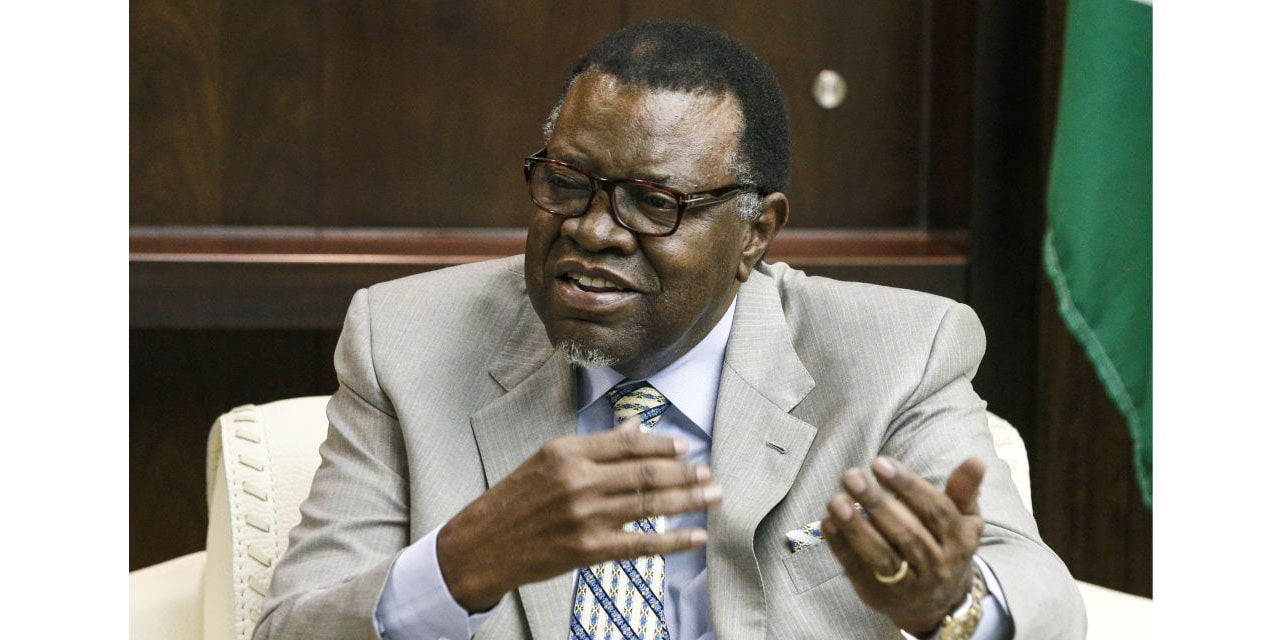Tujoromajo Kasuto
President Hage Geingob says he believes hate speech fuels extremist views and is a cause of great concern with the world witnessing a growing trend of extremism.
He says it is in unity that strength lies and it is in pursuing policies of inclusion that will build robust processes, systems and institutions that will imbue trust, confidence and cooperation in efforts of building peaceful, prosperous and inclusive societies. “Hate has no place in society. It distracts from inherent human capacity to show compassion and uplift the human spirit,” he adds.
Geingob expressed these sentiments virtually as keynote speaker at the Global Ministerial Conference on the role of Education in Addressing and Building Resilience Against Hate Speech. He commends the United Nations’ Secretary General, António Guterres, for leadership in facilitating this important conference, in line with the commitments of the UN Strategy and Plan of Action on Hate Speech.
Geingob says hate speech plants the seeds of disunity, hatred and intolerance, leading to breaking down the fabric of basic human values and this trend poses a great danger to efforts of promoting multilateralism, cooperation, and seeking peaceful solutions to conflict. “Inclusivity spells harmony but exclusivity spells conflict,” he emphasises.
“Hate speech is a catalyst for exclusivity, and therefore a direct threat to our shared values of caring, solidarity and compassion. It is a menace in our societies, which if not addressed, with all seriousness, will undermine our aspirations and efforts to building a more equitable, peaceful and prosperous world for all,” maintains Geingob.
The President notes that the Covid-19 pandemic has amplified existing concerns related to the spread and use of hate speech globally. It has also created new vulnerable groups targeted by hate speech.
Thus, he says, the need to ensure that education and training, especially at schools, including via online platforms, also addresses Covid-19 related hate speech, disinformation and misinformation by encouraging critical thinking, social and emotional skills and responsible engagement through global citizenship and human rights education.
“It is my fervent hope that this Ministerial Conference will achieve fruitful discussions on how to build supportive learning communities, which entrench in our learners, appreciation for the diverse world that they are born into. I further hope that the outcome document will devise clear actions that chisel away.”
Beyond playing a directive role in framing critical thinking skills, schools also play a supportive role in modernising attitudes. On a personal level, in advocating for unity in Namibia, he says he has always used the analogy that nation building is like building a house. “You begin by laying a foundation on which you construct your house, one brick at a time. You conclude by applying plaster and paint, until the individual bricks are no longer visible and all that is left is a strong and sturdy house.”
The President says this is also applicable to the global context where they can think of all the ethnicities of the world as the various bricks that are used to build a house. “This analogy speaks to the essence of how critical we all are and how much value we all add to the Global Village that is the world we live in.”
The Conference was a one-day, high-level online conference, in the presence of Heads of State and Government, Ministers of Education, the United Nations Secretary-General and UNESCO Director-General to endorse global commitments to address hate speech, both on- and offline, through education.




